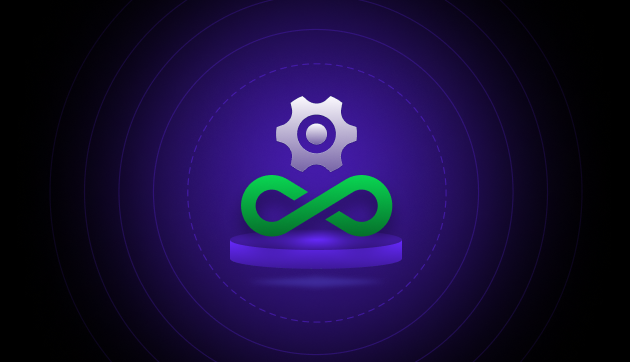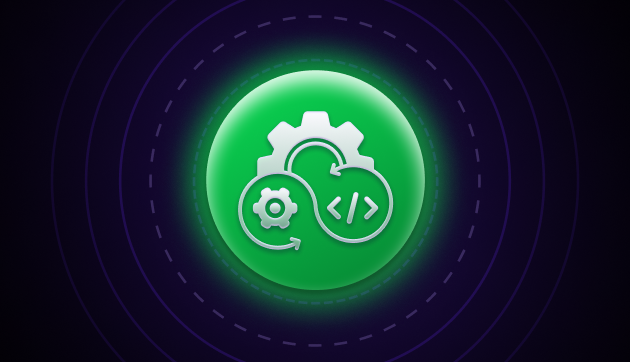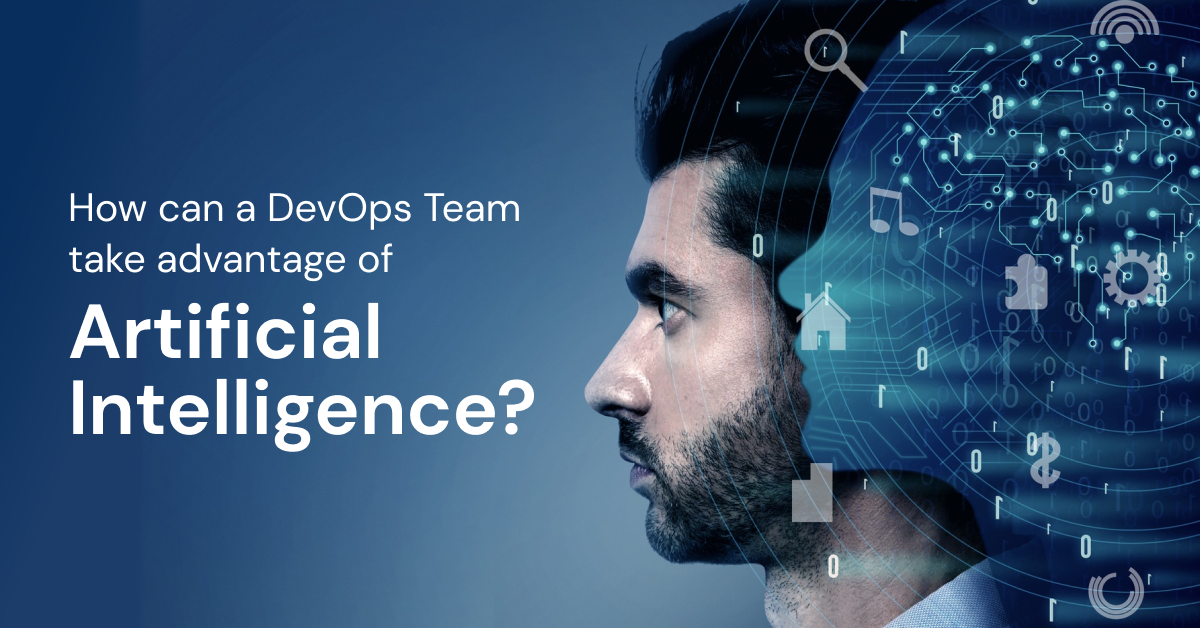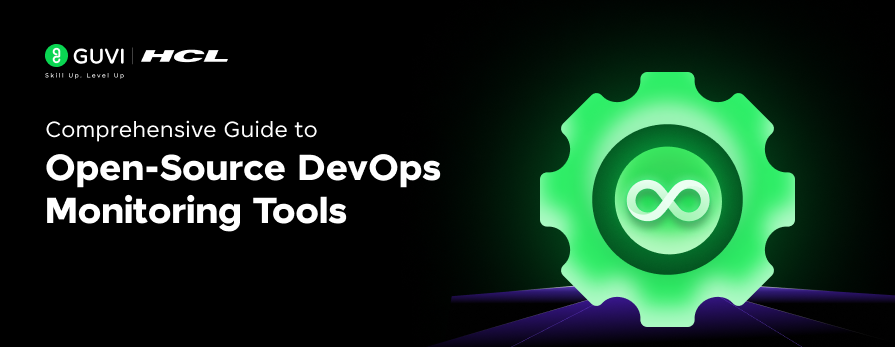
In the ever-evolving realm of software development, embracing DevOps has become more than just a trend. It has become a necessity for organizations aiming to deliver high-quality software efficiently. Utilizing DevOps practices to maximize speed and value creation has been a hot topic in the software industry for the past decade.
As we step into 2023, let’s explore the 10 Best DevOps Practices and ways to improve our workflows that will help you to succeed in the field. From the latest trends to time-tested principles, we’ll delve into the essence of DevOps and how it is reshaping the software development landscape.
Table of contents
- 10 DevOps Best Practices You Should Know
- Embrace Automation
- Infrastructure as Code (IaC)
- Continuous Integration and Continuous Deployment (CI/CD)
- Microservices Architecture
- Containerization and Orchestration
- Security-First Mindset
- Collaborative Culture
- Monitoring and Observability
- DevOps Metrics and Measurement
- Cross-Platform Compatibility
- Conclusion:
- FAQs
- Q1. Why is automation crucial in DevOps?
- Q2. How does microservices architecture align with DevOps practices?
- Q3. What are the major practices of DevOps?
- Q4. Why is collaboration important in DevOps?
10 DevOps Best Practices You Should Know
Before we move to the next part, you should have a deeper knowledge of DevOps concepts. You can consider enrolling yourself in GUVI’s DevOps Course, which lets you gain practical experience by developing real-world projects and covers technologies including Agile, Scrum, Linux, Git, Bash Scripting, Dockers, Containers, AWS infrastructure, etc. Additionally, if you would like to explore AWS Infrastructure through a Self-paced course, try GUVI’s AWS Infrastructure certification course.
1. Embrace Automation
In the era of DevOps, automation isn’t just a buzzword; it’s the backbone of efficiency. Tools like AWS and Azure DevOps are pivotal in automating mundane tasks, reducing manual errors, and accelerating the development lifecycle. By automating processes such as testing, deployment, and infrastructure provisioning, teams can focus on innovation rather than repetitive tasks.
2. Infrastructure as Code (IaC)
The shift-left movement has brought Infrastructure as Code to the forefront of DevOps principles. With IaC, teams can define and manage infrastructure in a declarative manner, ensuring consistency and reproducibility. Leveraging tools like Terraform or AWS CloudFormation, DevOps teams can codify infrastructure, promoting collaboration and version control.
3. Continuous Integration and Continuous Deployment (CI/CD)
CI/CD has long been a cornerstone of DevOps practices, and it remains as relevant as ever in 2023. By automating the integration and deployment processes, development teams can deliver code changes more frequently and reliably. This not only enhances the speed of delivery but also reduces the likelihood of defects making their way into production.
4. Microservices Architecture
The shift towards microservices continues to gain momentum in 2023. Breaking down monolithic applications into smaller, independent services allows for greater flexibility and scalability. Microservices align seamlessly with DevOps practices, enabling teams to develop, deploy, and scale components independently, fostering faster innovation cycles.
Not just following the best practices on DevOps, you should also know the key skills required to become a DevOps engineer.
5. Containerization and Orchestration
Containers, powered by technologies like Docker(a DevOps tool), have become instrumental in achieving consistency across various environments. Orchestrators like Kubernetes further enhance scalability and manageability. Containerization ensures that applications run consistently in any environment, from development to production, streamlining the deployment process.
6. Security-First Mindset
In the wake of increased cyber threats, security is no longer an afterthought in DevOps. Adopting a security-first mindset involves integrating security measures throughout the development lifecycle. Automated security testing, vulnerability scanning, and incorporating security best practices into the CI/CD pipeline are crucial for safeguarding applications and data.
7. Collaborative Culture
DevOps is not just about tools and processes; it’s a cultural shift that promotes collaboration between development and operations teams. Encouraging open communication, shared responsibilities, and breaking down silos fosters a collaborative environment where teams work together towards common goals.
8. Monitoring and Observability
Proactive monitoring and observability are essential for identifying and addressing issues before they impact users. In 2023, the emphasis is on real-time insights into application performance, infrastructure health, and user experience. Tools like AWS CloudWatch and Azure Monitor provide the visibility needed to ensure optimal system performance.
9. DevOps Metrics and Measurement
To continuously improve DevOps practices, it’s essential to measure and analyze key metrics. Tracking metrics such as deployment frequency, lead time, and mean time to recovery provides valuable insights into the efficiency and effectiveness of the DevOps pipeline. These metrics guide teams in identifying areas for improvement and optimizing their processes.
10. Cross-Platform Compatibility
With organizations often employing multi-cloud strategies, ensuring cross-platform compatibility is vital. DevOps practices need to be adaptable to different cloud providers, such as AWS and Azure, allowing for seamless integration and deployment across diverse environments.
Kickstart your career by enrolling in GUVI’s DevOps Course where you will master technologies including Linux, Git, AWS, etc, and build interesting real-life DevOps projects. Alternatively, if you want to explore AWS infrastructure through a Self-paced course, try GUVI’s AWS Infrastructure certification course.
Also, once you learn DevOps, there are immense career opportunities you can explore and get a high-paying job.
Conclusion:
As we navigate the dynamic landscape of software development in 2023, it’s evident that DevOps is not merely a set of practices but a transformative approach shaping the industry’s future. The 10 best DevOps practices outlined here, from embracing automation to fostering a collaborative culture, reflect the ongoing evolution and maturation of DevOps principles.
DevOps is not a destination but a continuous journey of improvement, and by embracing these practices, teams can navigate the ever-evolving landscape with confidence, delivering high-quality software at speed and scale.
Also Explore: A Complete DevOps Career Roadmap in 2023
FAQs
Q1. Why is automation crucial in DevOps?
Ans. Automation is at the heart of DevOps as it eliminates manual errors, accelerates processes, and allows teams to focus on innovation rather than repetitive tasks. It ensures consistency and reliability throughout the development lifecycle.
Q2. How does microservices architecture align with DevOps practices?
Ans. Microservices architecture aligns with DevOps by enabling independent development, deployment, and scalability of services. This approach supports faster innovation cycles and enhances the overall agility of development teams.
Q3. What are the major practices of DevOps?
Ans. Some of the major practices
Continuous Integration.
Continuous Delivery.
Microservices.
Infrastructure as Code.
Monitoring and Logging.
Communication and Collaboration.
Q4. Why is collaboration important in DevOps?
Ans. DevOps is a cultural shift that encourages collaboration between development and operations teams. Open communication, shared responsibilities, and breaking down silos foster a collaborative environment, leading to more effective and efficient development processes.






















![10 Impressive Docker Project Ideas [With Source Code] 2 Docker Project Ideas](https://www.guvi.in/blog/wp-content/uploads/2024/11/Docker-Project-Ideas.png)





![Top High-Paying Non-Coding Jobs in DevOps [2024] 8 Non-Coding Jobs in DevOps](https://www.guvi.in/blog/wp-content/uploads/2023/11/Top-10-Non-Coding-Jobs-in-DevOps.png)
Did you enjoy this article?